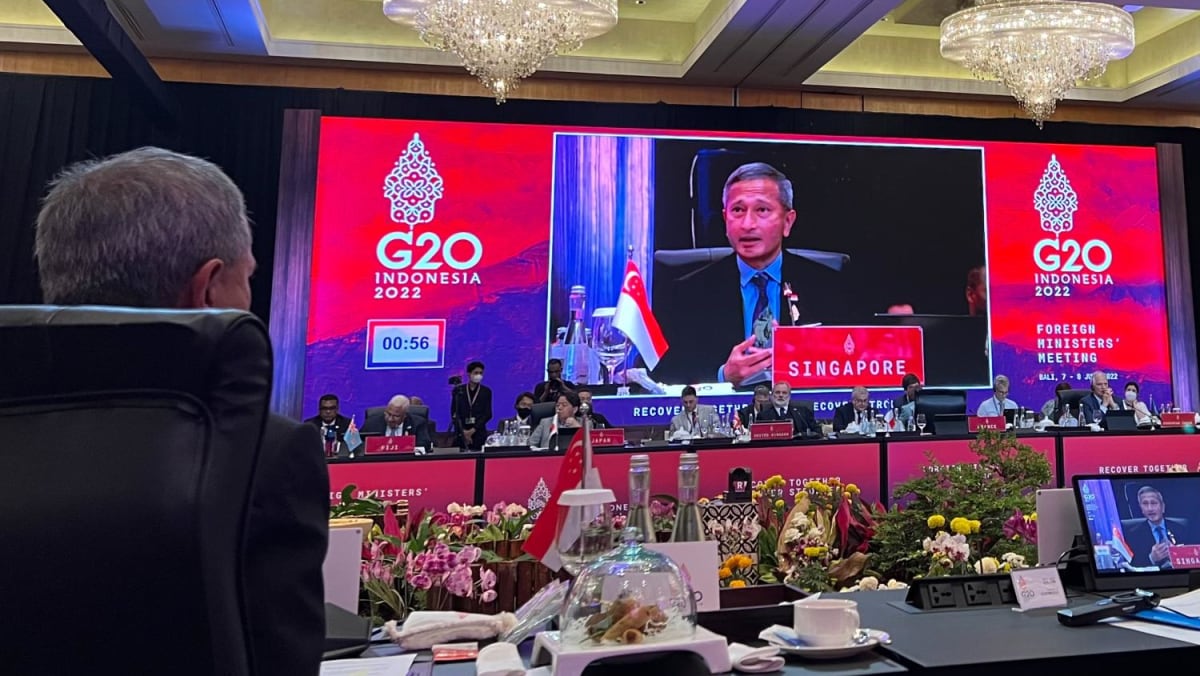
Dr Balakrishnan also stressed the need to keep borders open and to “resist the temptation of protectionism”.
“These are siren calls, but ultimately self-defeating at a global level,” he said.
According to him, countries need to transform its food systems to “increase the yields”.
“Without a significant increase in food technology and yields, we will not be able to overcome the shortage,” he said. “I know that there are some countries that operate on precautionary principle, but we really need to get realistic on how we are going to feed the growing world population.
“Similarly, we also need a better handle on IUU (illegal, unregulated and unreported) fishing because when we deplete our fish stocks, we are just setting up problems for ourselves. For some of us, we need to depend on aquaculture.
“We also need to have the technology and to be able to do this sustainably.”
Dr Balakrishnan also highlighted the need to develop green energy, calling it “not just a green issue, not just an issue of resilience, but … one of national security”.
“This is again, another imperative that we need to work together, share the fruits of research and development, facilitate cross border trade of renewable energy and the supply chains that support it,” he said.
“I would also add that for those of you who are capable of safe, civilian nuclear power – this is also another complement. Otherwise, in the short term, even as we make the energy transition, coal will remain a big portion of baseload production of energy.
“My appeal to the G20 is stop weaponising food, get food flowing across borders, support research and development, and help us get into a sustainable world where we can feed people and we do not make things worse,” he said.
COUNTRIES “MUST UPHOLD” INCLUSIVE, RULES-BASED MULTILATERALISM SYSTEM
In an earlier session on strengthening multilateralism, Dr Balakrishnan noted that Singapore is “dependent on a stable world that cooperates on the basis of multilateralism”.
“But we are now facing a perfect storm – pandemic, war, energy crisis, bifurcated world, superpowers,” he said.
He added that dialogue and diplomacy “remain essential” and urged countries to recommit to avoiding armed conflict.
“We need to update and strengthen the United Nations and other international organisations also represented around this table, in order that they remain fit-for-purpose as an effective framework to bridge differences, manage crises and foster cooperation in a real and realistic way,” he said.
“We must uphold an inclusive, rules-based multilateral system, guard against protectionism, avoid retreating back to an era of the Cold War, and avoid bifurcations – whether in technology, multilateral finance or trading, or in digital standards.
“Colleagues, multilateralism is not perfect, but it is the only game in town,” he said.

